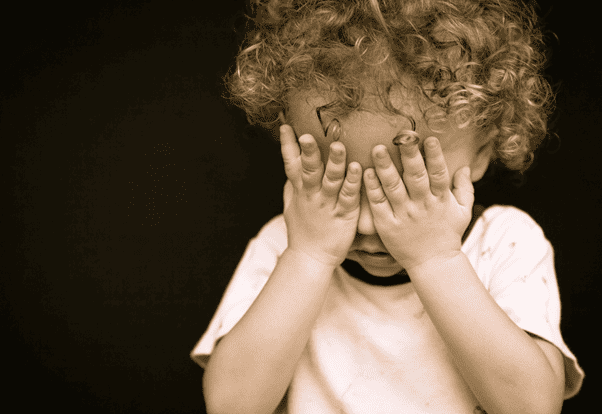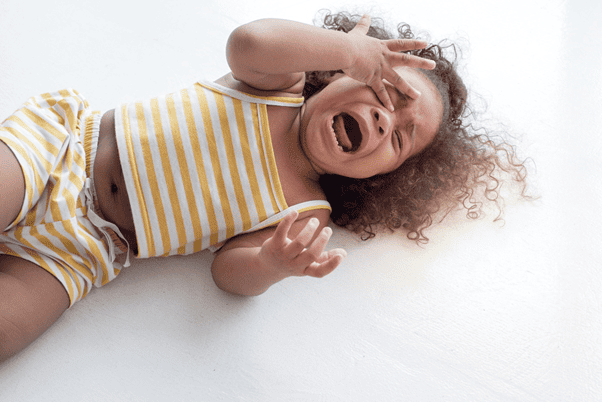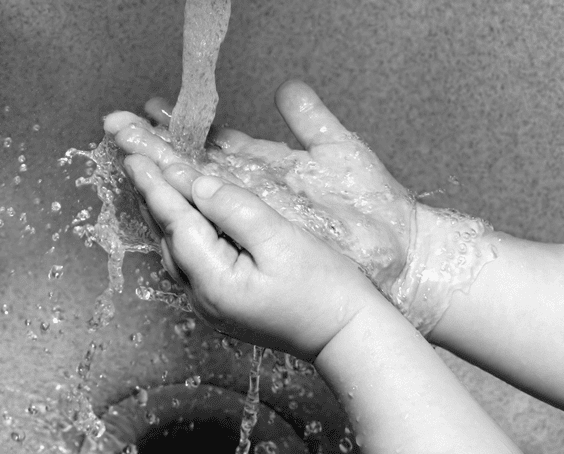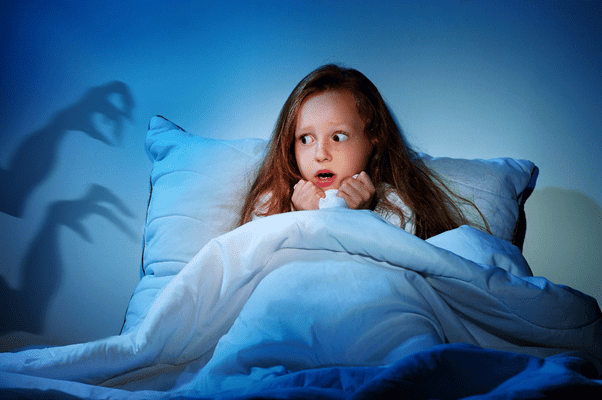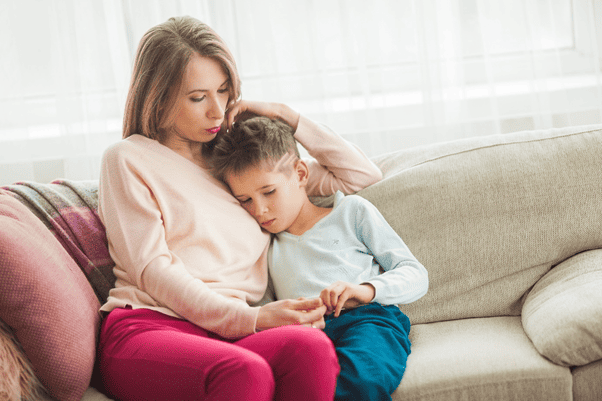Growing up through childhood is a naturally anxious time for many children. New skills to learn, fears to overcome, challenges to meet and a world that can be hard to understand. Sometimes children’s stressors or fears are just too much to handle, and there is little the adults in their lives can do to make it easier. When this occurs, your child could have an anxiety disorder.
Some types of anxiety kids experience are normal — fear of dogs, meeting strangers, spiders or monsters, for example. It is when the fear is all consuming, no matter what the trigger is, and stops them from taking part in their usual activities and their behaviour changes there may be a problem.
In Australia, anxiety disorders are the second most common mental health issue with it more common in boys than girls. One in 14 children between the ages of 4 and 17 experience some type of anxiety disorder. So it is important to get a diagnosis and follow up with treatment. But too many children are not getting the help they need. If an anxiety disorder is left untreated, it can cause their school work to deteriorate, harmful behaviour and they can struggle with their social skills.
Signs of Anxiety in Children
Children will show signs of an anxiety disorder psychologically and physically. But the symptoms that manifest will depend on the type of disorder and your child’s age. When there are physical symptoms take your child to the doctor to make sure they are unrelated to a physical condition.
Anxiety symptoms in children can manifest as:
- Excessive tantrums and crying, an increase in irritability and the inability to self-regulate in young children and toddlers.
- Physical symptoms such as chest pain, headaches, nausea, difficulty sleeping or breathing, refusing to eat and needing to go to the bathroom more frequently in children of all ages.
- Regressive behaviour in young children such as bed wetting after being toilet trained.
- Hypervigilance where your child constantly monitors their environment and is on high alert. They may misinterpret harmless suggestions and situations as signs of danger.
- Your child may become rigid in the way they want things done. Or they could avoid situations such as school, social situations and people, and new experiences overwhelm or make them feel threatened.
Different Anxiety Disorders Children can Experience
There are a lot of different anxiety disorders. The following are the ones that most commonly affect children.
Social Anxiety Disorder
Your child may have social anxiety disorder if they are scared to go to school or interact with others. This can be because they fear being embarrassed or looking silly in front of other people. They may also refuse to participate in classroom activities and this can make it difficult for them to make friends. Their fear may manifest as crying, throwing tantrums, refusing to speak, being clingy and trying to avoid situations that trigger their fear.
Generalised Anxiety Disorder
A child with generalised anxiety disorder excessively worries about things. This may include thinking that something bad will happen to someone close to them, and worrying about doing well at school, family relationships and other things. Their worry will be out of proportion to the situation and they will worry all the time. And they constantly need reassurance. Excessive worry may cause your child to be irritable, overly tired, and have trouble sleeping, focusing and concentrating.
Specific Phobias
Most specific phobias do not manifest through an incident and are usually irrational. A child can develop a phobia about many things such as people, objects, animals, loud sounds or situations. They will demonstrate their fear by crying , throwing tantrums or having a meltdown.
Separation Anxiety Disorder
Separation anxiety can occur in children aged between one and three years old. It is common for the age. But it can be a problem in older children, especially between the age of seven and nine. They can become anxious when apart from the people they know and love which could mean they have separation anxiety disorder. A child may constantly worry about something bad happening to their parents. They may refuse to go to school or stay overnight anywhere without their parents. And have physical symptoms such as nausea and headaches.
Obsessive Compulsive Disorder
Children with obsessive compulsive disorder have constant thoughts that provoke anxiety, compulsions and obsessions. They can relieve their thoughts temporarily by carrying out ritualistic behaviours. When a child fears germs, they may wash their hands repetitively. They can check and recheck doors and windows are secure, but as soon as they complete the ritual the intrusive thoughts come back so they need to complete the ritual again.
Panic Disorder
Children that have panic attacks can fear they will have more. These can last for between 15 to 30 minutes. During these a child can experience difficulty breathing and become dizzy. They may also feel like they are choking or dying, go hot or cold, and can fear they are going crazy. Their fear of having another panic attack may even lead them to avoiding situations that can trigger an attack.
Selective Mutism
When a talkative child refuses to speak in social situations they could have selective mutism. Parents can often miss seeing the behaviour until a teacher alerts them to the fact their child is not speaking at school. Usually children around the age of five can have a diagnosis of selective mutism but will usually grow out of it.
When to Seek Help
You should seek the help of a medical professional when your child’s behaviour causes:
- Trouble interacting with others, or making or keeping friends.
- Fear that escalates in intensity and frequency and they may act out, throw tantrums, scream and yell, and have meltdowns.
- Disrupted sleeping habits and a fear of monsters in the night.
- Physical symptoms such as headaches, stomach aches and vomiting that disrupts everyday activities and is not good for their health.
- Disruption or interference with the family’s activities and the household.
- Panic attacks in your child that causes nausea, sweating, increased heart rate or hyperventilation.
- Multiple incidents a day or a week.
- Compulsive or ritualistic behaviours such as washing their hands over and over again.
- Avoidance behaviour such as making continual excuses not to go to school.
Tips to Help your Child Cope
It is natural for a parent to try to protect their anxious child from what they fear. But, in essence, being overprotective can only make things worse. Here are some tips to help your child cope better:
- Avoid leading questions. Encourage your child to talk about how they feel but avoid asking leading questions. Instead of asking, “Are you anxious about going to school?” ask “How do you feel about school?”
- Try to help your child manage their anxiety. It is not a good idea to try to remove a child’s anxiety. Instead try to help them to deal with it the best way they can. In time their anxiety should start to lessen.
- Avoid avoidance. Avoiding what your child is afraid of will reinforce their anxiety over the long term even though it may help in the short term.
- Watch your tone and body language. Children are astute. Be careful you do not tell your child it is something they should be afraid of with the tone of your voice and body language.
- Have positive but realistic expectations. Avoid promising your child what they fear will not occur; for example saying, “I know you can’t fail.” Instead tell your child that whatever happens they will cope with the situation.
- Encourage your child. Let your child know how much you appreciate their efforts. Let them know that the more they push through their anxiety, the easier it will eventually be.
- Be a role model. Do not hide your own anxiety and stress. Make sure you let your kids hear and see how you manage it with calmness and how good it feels when you get through it.
- Avoid empowering their anxiety. When your child fears going to the dentist, for example, empathise with how they feel, but let them know they are capable of facing what they fear.
- Think things through together. It can help to talk about what would happen if their fear really did come true. Ask your child what they would do if this happened. Having a plan can help your child and reduce their fear in a healthy way.
- Shorten the anticipation. The hardest time when afraid is the anticipation before it happens or you have to face it. So when your child has a dentist appointment, wait until the last minute to discuss it.
Remember, it is important to seek help when your child is often anxious or has panic attacks.
Blissiree Pty Ltd
Helping a child with anxiety can be incredibly difficult. It can turn your family life upside down especially if they develop an anxiety disorder. Anxiety can affect your child’s mental and emotional health and all areas of their life and your household. It is difficult to manage anxiety when you do not seek help for your child.
Anxiety can be out of control if they are avoiding activities they used to love or they have trouble making and keeping friends. But if you do not prioritise your child’s treatment, it will continue to escalate. Until you do something to help them control their triggers, it will negatively impact their life and your household.
The Blissiree Pty Ltd is pioneering a new technique, a natural treatment for anxiety that may help. It only requires your child to relax. Highly trained facilitators help them learn to recognise the triggers and how to manage them. It may help them take back control of their life. And you may notice an improvement after the first session. With some simple changes to their life, and with practice, your child can learn to cope better.
If anxiety is affecting your child’s life negatively, it is time to turn it around. Time to do something positive. Seek help. Take back control. You and your child do not have to go through it alone. The sooner your child gets help, the sooner they can start taking good care of their mental health. And get back to enjoying life.
Reach Out
If you have a child that struggles with controlling anxiety, reach out to our professionals. When they are not coping, contact us. We can talk to them about how to get their life back on track. But if you or your child reaches a crisis point, call us immediately. We are here to support both of you.
We can work with you and your child over the phone, via Skype or in our Spas. Book in today for my special introductory offer for just $49 (private health rebates apply) so your child learns to control their anxiety. We aim to help you cope with any mental health challenges and to help you deal with the anxiety that has taken over your child’s life. Our facilitators may alleviate the effects so your child starts to take control and enjoy life again.
Let me Help Alleviate the Effects of Anxiety
My Emotional Empowerment Program has helped many people for more than a decade. My aim is to help manage the symptoms so your child may start to feel better. This can give you both a new hope for the future. A future filled with happiness, peace and contentment in weeks not years.
Help your child overcome their anxiety. Book a free 25-minute telehealth consultation with Blissiree Pty Ltd founder, Terri Bowman. Or discover a seamless way that may help your child manage their emotional and mental health by becoming a member. It will give you access to more than 75 audio programs that may help you and your child to live an inspired life.
What are you waiting for? Try us now. You have nothing to lose.

